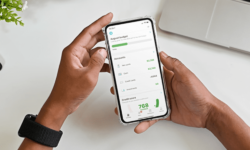Car Insurance 101: 10 Things You Need to Know
5. Insurance Discounts Can Help You Save Big
Before signing on the dotted line, you must understand that you can save big on your overall insurance rate by applying the available discount. Some of the discounts to take advantage of include:
- Customer loyalty
if you have been with your insurer for not less than three years, you are entitled to receive a loyalty discount. Some insurance companies also offer the policyholders discounts for early renewal if you bundle your home and auto insurance or take insurance on several cars together.
So consult with your insurance agent and understand how the discount will lower your premiums.
- Demographic
Some insurers offer a discount to policyholders who are good students, homeowners, or seniors.
- Driver affiliations
Depending on your career or memberships, some insurance companies offer discounts if you have signed up for emergency roadside assistance, military officer, or have a membership to certain clubs that enjoy discounts with them.
- Driving history
You’ll find that if you have a clean driving record free of violations, have recorded no accidents, and have lower mileage (less than 10,000), your insurer will offer you some discount.
- Driver training
Your insurance company will offer you a certain discount if you brush up on your driving by taking additional driving training and defensive driver courses. This is because the chances of you causing an accident are minimal. However, before taking the course, talk to your insurance agent and ensure that the time and money spent on these courses are worth the returns.
Outfit your vehicle with safety and security devices: Install anti-lock brakes, anti-theft alarms, and other safety features that make your vehicle less vulnerable to damage and theft. And your insurer will offer you a certain amount of discount.
Read also: 15 ways to save big on your car insurance
6. Higher Deductibles Lower Your Premium
Your insurance policy price is based on the amount the insurance company believes it could compensate you in the event of an accident. So, after settling on the rate, if you discuss with your agent and see fit to raise your deductible, the insurer knows that they are responsible for part of your claims. And this is not as high as if your deductibles were low.
However, before deciding on how much to put as your deductible, make sure that the money will be available at any time because you never know you can get into an accident. You can save for your deductibles in an emergency or sinking fund.
7. Your Car Can Affect Your Premiums
The car you are driving affects your insurance policy rates. For instance, if your car parts are expensive and hard to find, the insurer will have to pay more to have your car repaired in case of an accident. This, in turn, increases your policy rates during evaluation.
However, suppose your car is exceptionally safe such that it has added protective devices and the windows are bulletproof. In that case, your insurer will lower the cost of your policy because the chance of getting into an accident is minimal. In case of an accident, resulting bodily injury is less due to enhanced protection.
So when you are buying a car or switching your old car for a new one, talk to your insurance agent, ask for recommendations, and what benefits you will get.
8. Letting Your Car Insurance Policy Could Result In You Paying More When You Need It Again
You may be tempted to cancel your car insurance if you don’t plan on driving it for the next several months. While this is feasible in terms of saving, most insurance companies view licensed drivers without coverage as irresponsible.
It is also easy to forget to renew your coverage when it expires, and as a result, your insurance rates will be a tad higher should you require repurchase insurance cover.
Therefore, contact your insurance company and request other options if you don’t plan on using the vehicle for extended periods.
9. Personal Insurance Does Not Cover Any Business-Related Accidents
If you use your personal car for your business and have not acquired commercial coverage, understand that your insurance company will not cover you in case of a business-related accident. And most insurance companies will end up canceling your policy if they find out you are using a personal car for your business.
So before taking up side gigs such as delivery business or Uber, ensure that your vehicle is covered for that because if not, you will be required to pay for the damages out-of-pocket.
Some companies, such as Uber and Lift, have good coverage for their drivers but leave them vulnerable when waiting for the next customer. Ensure that the money you get on your side gigs is put into proper use by taking the appropriate coverages.
10. Step-By-Step Process Of Getting Car Insurance
- Determine the minimum auto insurance requirement by your state
- Review your financial situation and how much coverage you can afford
- Review the status of your driving record
- Source for at least three quotes
- Research about the insurance companies
- Talk to insurance agents from various companies
- Ask for discounts
- Now that you have all the details assess each company according to the information gathered
- Settle on the policy you find that it suits your needs
- Cancel your old insurance policy, and always have proof cover with you at all times.
Now that you know everything there is about car insurance, the next step is getting coverage for your vehicle.
Final Thoughts
Buying auto insurance is like any other type of insurance. You’ll have to do your research, compare prices and settle for the insurance company that offers you the best deal. And while at it, ensure that you utilize all the available discounts to lower your overall insurance costs.
Don’t get comfortable, follow auto insurance trends, and check what different insurance companies offer policyholders. If you find a better deal, feel free to switch after your policy expires.
But most of all, ensure that you are fully protected and not cutting corners as you could find yourself vulnerable and underinsured.



